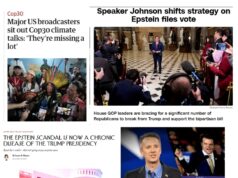Coalition for Smarter Growth, Piedmont Environmental Council, Southern Environmental Law Center, Virginia League of Conservation Voters, Virginia Conservation Network
STATEMENT ON PASSAGE OF VIRGINIA TRANSPORTATION FUNDING BILL (HB2313)
For Immediate Release: Contact:
February 23, 2013 Stewart Schwartz, CSG
Chris Miller, PEC
Trip Pollard, SELC
Jeff Painter, VALCV
“Our groups pressed for major progress at every step of the legislative process, including pushing for the needs of the Northern Virginia and Hampton Roads regions, funding for local roads, substantially more funding for transit, and most of all – for a meaningful, on-going evaluation of VDOT spending,” said Jeff Painter Executive Director for the Virginia League of Conservation Voters. “While a number of the priorities we recommended were included, such as funding for Northern Virginia and Hampton Roads, for intercity rail, for Dulles Rail, and for road maintenance, there remains a great need for thorough evaluation of how and where all of these new taxpayer dollars will be spent.”
The groups noted, that while Northern Virginia and Hampton Roads are given new local revenue sources and the power to direct the funding to local road and transit projects, the arrangement also lets the state off the hook.
“Giving localities the responsibility to raise taxes to pay for a limited range of projects, while most existing revenue is diverted to wasteful new highway projects, is not a good deal. Over the long term, it will result in local tax base, not state transportation revenues, covering the cost of the transportation systems that serve the majority of Virginians,” said Chris Miller, President of The Piedmont Environmental Council.
“The compromise the General Assembly adopted is too road-heavy, but it does provide important benefits. Funding for passenger rail, Dulles Rail, and other transit needs are among the most significant positive features of this package,” said Trip Pollard of the Southern Environmental Law Center. “Virginia has to move toward a more balanced approach that provides greater transportation choices and a cleaner, more efficient system.”
“Now that the bill has passed, it will be incumbent upon the legislators and local elected officials to watch-dog how the money is spent; starting with the next update of the state 6-Year Transportation Plan,” said Stewart Schwartz, Executive Director of the Coalition for Smarter Growth. “Where we spend our tax dollars and whether we are supporting more efficient, smarter growth with our transportation investments should be a central topic of this year's Governors race.”
Among the group's concerns about the bill are the following:
1) It doesn't commit the state to funding local roads (which it has failed to do for a number of years) and pushes the cost for local roads onto Northern Virginia and Hampton Roads.
2) It doesn't require wiser spending by VDOT even as it effectively allows for about $500 million a year in additional highway construction funding for VDOT.
Just this week, VDOT took $869 million in GARVEE bonds (out of $1.2 billion authorized statewide in 2011) for Route 460 and the Coalfields Expressway, two of the most wasteful projects to be proposed in Virginia. Just four proposed projects — Route 460, Coalfields Expressway, Charlottesville Bypass, and the Northern Virginia Outer Beltway — would consume $5.5 billion that could be used for higher priority needs.



![Saturday News: “Trump’s latest tariff TACO probably won’t make your life more affordable”; “The Epstein Email Cache: 2,300 Messages, Many of Which Mention Trump”; “[MTG] questions if Trump is still the ‘America First’ president”; “Jim Ryan tells all: ‘What did the Governor know, when did he know it?’”](https://bluevirginia.us/wp-content/uploads/2025/11/montage1115-238x178.jpg)








![Saturday News: “Trump’s latest tariff TACO probably won’t make your life more affordable”; “The Epstein Email Cache: 2,300 Messages, Many of Which Mention Trump”; “[MTG] questions if Trump is still the ‘America First’ president”; “Jim Ryan tells all: ‘What did the Governor know, when did he know it?’”](https://bluevirginia.us/wp-content/uploads/2025/11/montage1115-100x75.jpg)
